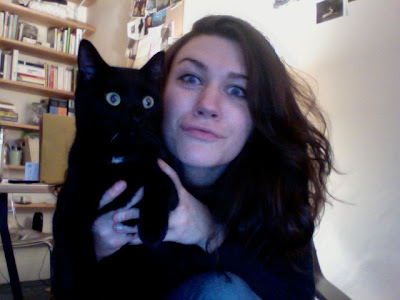So all plans for fall mixtapes, awesome blog posts, etc etc have been STUNTED due to the fact that I have no time to do anything but work and think about work goddammit I can't even sleep all I think about is rhetorical devices, and deadlines, and scary misogynistic professors, and did Brutus really have that in him or did Cassius put it there goddd just RELAX Cassius seriously, he is like a hyperactive child without his ADD medication. And it's about to get worse. ESSAYS, my friend, and, consequently, spending an outrageous amount of time and energy devoted to a very specific, very arguably inconsequential, set of material. I'm starting to forget why I think literature is important. If I think it's as important as other things. A big part of me feels it's an incredibly narrow niche to settle oneself into For All Of Time. The "Where Will You Be in 10 Yrs" Facebook quiz says I'm going to be a goddamn surgeon! It says I'm going to be someone's hero. And all I want to do is sit on a warm porch somewhere writing history plays. Not enough people writing history plays, these days, and so much good history despite it all!
Thinking about Political Science tho.
I want 2 b herd.
Anyway, this is more or less what my Halloween looked like, but with more PCP obviously, although perhaps the PCP is just implied always:

Claude has three pairs of socks going at once right now. He opens my sock drawer and steals them and hunts them. He rolls around on the floor with them tucked up into this frantic grasp, and teeths them mercilessly, feverishly, the most genuinely untamed thing I've seen ever in real life maybe. Sometimes I put catnip in the socks and he loses it completely. I love him so much, and respect him, perhaps, more than I've ever respected a person, although that's probably not true. He is the best. The Unmoved Mover that Caesar never was. Oh, he's incredible. At the end of everything he just lies there triumphantly on top of this pile of limp socks.
Oh also, I'm going home for Thanksgiving. What, the idea of jetting across the ocean for a few days just to achieve some sort of nostalgic wish-fulfilment in the form of a nationalist archetype is just simply ludicrous, you say? Well I'd have to agree. But I've been irrationally encumbered by this fervid will toward the sentiment of the romanticised American homestead, and these arms, they stretch, unbelievably so, under the guidance of delusion. Speaking of delusion, that's awl LyFe is lolol!! But one must allow oneself to seek false importance in some things, or else this is all just blank space, you know. I mean, I get it, it's blank space always no matter what we tell ourselves, we must look within etc etc. But one must allow oneself the indulgence of at least a couple metaphysical apparitions of Meaning, or else give way to, if nothing else, a vacuous, harrowing boredom.
See this is why I don't have time for this shit anymore. Can't we just keep it light? Purpose is the Cat. And going home for a fake holiday that is symbolic of many things it wasn't, and which I, despite everything, hold instinctually dear.
Lastly, and to add another brick onto the "holy shit these are all the implications of Facebook on our current lifestyle" heap, what do we think of the idea of judging, and knowing, that someone is perfect for you simply by looking at their Facebook? Can it be done? How far do these representations of ourselves extend? Can they ever amount to any form of authenticity? Can I myself ever amount to any form of authenticity, in terms of the perceptions of others? There is my authentic self, and there is the person I am able to communicate into being. So much is lost in between. No matter how candid or personal we might become with someone, one can simply never know the actuality of another person. Because it is physically impossible. I have no idea who my friends know. Some half-assed version of Paige, an impression based on some compilation of fragments of myself, limited always by time and place and circumstance. How does Facebook fit into this? Are the internet representations of ourselves really any less "authentic" than who others perceive us to be in "reality," or do we just think they are, because we haven't fully come to terms with the falsities of human interaction, and how they actually remove us further from ourselves? What about Facebook romance? What about real romance?
Christ, somebody get this bitch some segues.













































